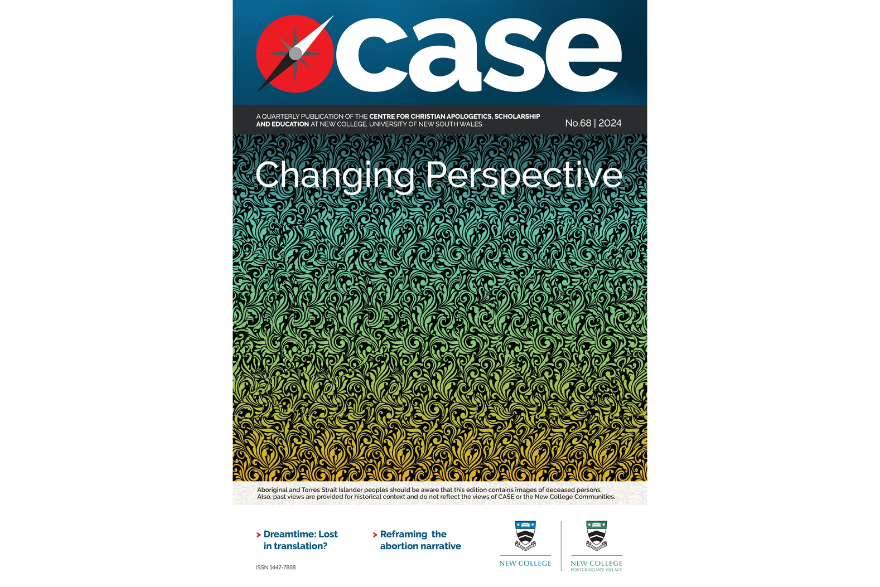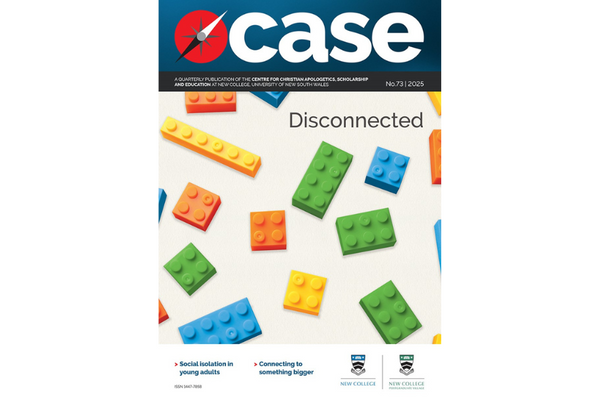Changing Perspectives: Editorial

William L. Peirson
‘You are out of touch!’ is a criticism that is levelled at me regularly. The context might be sexual ethics in a university context, the importance of the spiritual realm to the hard-nosed world of civil engineering, maintaining aspirations for community-based, liberal education in a commercial student accommodation market, or promoting multi-disciplinary innovation in the politically-charged realm of environmental restoration.

If, like me, you feel as though you and those around you have completely different values and are constantly talking past each other, I hope this edition of Case Quarterly will be an encouragement. The common thread running through all our main articles is how changing your viewpoint changes what you perceive.
Christopher Watkin critiques the significant but limited accounts of human nature of Hobbes and Rousseau that have influenced sociology and politics over the past two hundred years. He points out that while neither of these one-eyed or ‘monoscopic’ perspectives is incorrect, each provides only a limited view of who we are. But when we understand from the Bible how these different perspectives relate to one another in a wider context, a new reality becomes apparent—just as carefully viewing the stereogram on our cover, with both eyes appropriately focused, reveals a previously invisible image.
Another striking example of the difference changing perspective can make is found in abortion narratives. It has become a feminist norm to consider abortion as necessary: to allow sex to be uncoupled from any reproductive burden for women and men alike. Early feminists also fought for such equality between the sexes in regard to reproduction, but took a very different approach and viewed abortion in a completely different light. Emma Wood explains the historical shift that led to the reframing of abortion as necessary, and its implications for both pro-life and pro-choice arguments today.
We next have the story of how the term ‘Dreamtime’ entered the English language, and how it led to misunderstandings about Aboriginal religious views that persist widely today. John Harris and David Moore provide two different angles on this story. The former tells how a limited understanding of language and linguistics on the part of some translators led half-truths to be twisted and confidently overstated, and more accurate understandings overlooked. The latter explains how faulty presuppositions about ‘uncivilised’ people directed early anthropological conclusions about Aboriginal culture, including about the Dreamtime.
I have the privilege of writing the editorial to this issue of CQ, towards which I have contributed very little. I sincerely thank our authors, our dedicated columnists and, of course, Dani Scarratt and AJ Culp for their hard work in bringing this issue together. Some of our deepest modern controversies are addressed in these pages. Whatever viewpoints you bring to this edition, I pray that these pages will provide you with a more complete picture of the complexities involved, and encourage you to deeply consider the implications of this for life under the lordship of Jesus.
Leave a comment
Comments will be approved before showing up.



